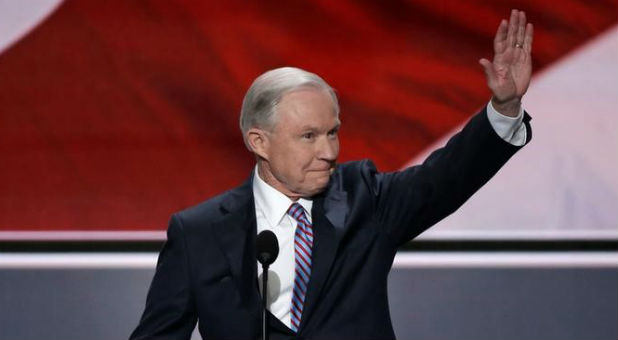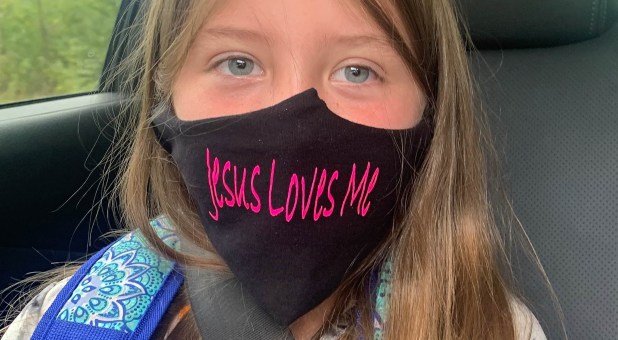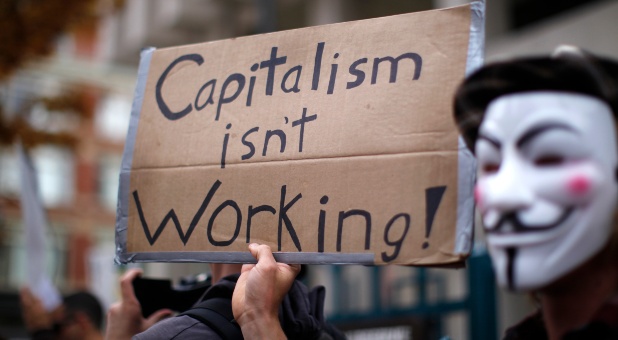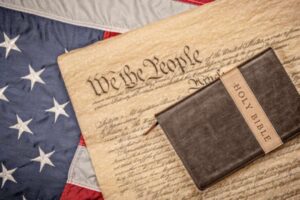On Nov. 8, America elected a president with vastly different views on crime from former President Barack Obama.
The Obama administration’s views on crime and police undercut local law enforcement and left vulnerable some of the nation’s most crime-ridden communities. The Trump administration can help reverse these trends.
In his farewell speech delivered in Chicago, Obama said that “by almost every measure, America is a better, stronger place than it was when we started.”
But crime levels in Chicago refute that claim. In 2016, Chicago saw 762 homicides, more than any year in the last two decades. In August alone, 400 people were shot and at least 78 were killed.
While Obama glossed over the dismal crime statistics, back in Washington, at his confirmation hearing to be the next U.S. attorney general, Sen. Jeff Sessions, R-Ala., testified that “there were 4,368 shooting victims in Chicago” last year.
“We must not lose perspective when discussing these statistics,” Sessions said. “We must always remember that these crimes are being committed against real people, real victims.”
Sessions acknowledged that official FBI crime statistics show a 4 percent overall increase in crime from 2014 to 2015, “the largest increase since 1991.” And murder rates have increased by almost 11 percent, “the largest single-year increase since 1971.”
In a 56-page law review article published in the final days of his presidency, Obama wrote that “my administration saw the rate of violent crime fall to its lowest point in decades.” But he did not mention the record levels of violence or the real victims in Chicago, either in his speech or in his article.
Because Obama refused to acknowledge these disturbing crime trends, he was unable to meaningfully help victimized individuals, families and their communities or address the social and economic problems in those communities with high violent crime rates—the same communities progressives claim to serve.
Meanwhile, Sessions stated that “it is a fundamental civil right to be safe in your home and your community.”
Walter Williams, a professor of economics at George Mason University, writes that blacks in particular “are disproportionately represented as victims in every category of violent crime—e.g., forcible rape, robbery and aggravated assault.” And criminals, “having driven many businesses out” of their communities, force their neighbors “to bear the costs of shopping outside their neighborhoods.”
According to Williams, this “lawlessness and insecurity in many black communities is a relatively new phenomenon … “What changed everything,” he argues, “was the liberal vision that blamed crime on poverty and racial discrimination.”
Williams believes that “politicians who call for law and order are often viewed negatively, but poor people are the most dependent on law and order.”
The new administration in Washington appears to understand this.
Williams may be right to argue that politically, “it doesn’t pay a black or white politician to take those steps necessary to crack down on lawlessness in black communities.” But the new administration seems more concerned about results than politics.
Three factors in particular bode well for public safety results under the Trump administration.
First, Sessions has said that he would ensure that the law is “properly and fairly enforced,” in part by helping state and local officers adopt community-based policing practices and holding individual law enforcement officers accountable for any failures rather than blaming the law enforcement community as a whole.
Sessions argued that “if we are to be more effective in dealing with rising crime, we will have to rely heavily on local law enforcement to lead the way.” He committed to helping state and local law enforcement officials “strengthen relationships with their own communities where policies like community-based policing have been proven to work.”
Second, Sessions has proven his commitment to just and equal enforcement of the law as a prosecutor and as a senator. He prosecuted members of the Ku Klux Klan and pursued individuals who, it was alleged, deprived African-Americans of their votes—although a jury ultimately acquitted them.
As a senator, he drafted criminal justice legislation in 2001, a politically risky challenge to his own party’s politics. Sessions said then that a certain criminal sentencing scheme (in which there was a 100-to-1 weight ratio disparity between crack cocaine and powder cocaine needed to trigger a mandatory minimum sentence) was “not justifiable,” and recommended changes to “make the criminal justice system more effective and fair.”
In his recent law review article, Obama boasted that “In August 2010, I signed the Fair Sentencing Act.” But this came a whole decade after Sessions had introduced the first version of the law in Congress.
Finally, like the attorney general-designate, the new president who nominated him understands and acknowledges that crime remains a serious problem in this country.
In his inauguration speech last Friday, President Donald Trump said that “Americans want great schools for their children, safe neighborhoods for their families and good jobs for themselves … But for too many of our citizens, a different reality exists”—one of poverty, a lack of economic an education opportunities “and the crime and the gangs and the drugs that have stolen too many lives and robbed our country of so much unrealized potential.”
Like Williams, Trump understands that crime is a serious problem for victims and their communities, and that it can destroy opportunity, freedom and prosperity—especially if politicians fail to address it.
There are many ways Congress might work with the Trump administration to improve the criminal justice system. Sessions is already off to a good start, having shown support for proven community policing strategies and pledged to crack down on crime.
Among Sessions’ law enforcement priorities, if and when he becomes attorney general, will be to “systematically prosecute criminals who use guns in committing crimes” and to “partner with state and local law enforcement to take down drug trafficking cartels and dismantle gangs.”
Politicians who have claimed to speak for crime-riddled communities will likely disagree, but the Trump administration’s call for law and order secured through community-based policing stands to bring greater public safety—and its related social and economic benefits—to communities where it is most needed. {eoa}
This article originally appeared on The Daily Signal.
See an error in this article?
To contact us or to submit an article




















